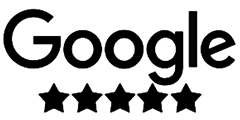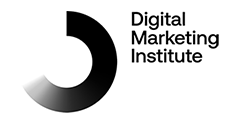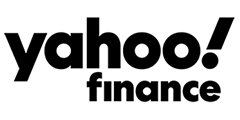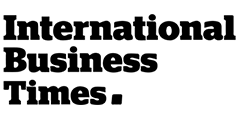Blog
Understanding your target market is essential as it allows you to tailor your marketing efforts effectively, ultimately leading to higher conversion rates and increased profitability.

May 13, 2024
By
Kamran Awan
Category
Business
Targeting the right market is crucial for the success of any business venture. But what exactly is a target market? In simple terms, it refers to a specific group of consumers that a company aims to reach with its products or services. Understanding your target market is essential as it allows you to tailor your marketing efforts effectively, ultimately leading to higher conversion rates and increased profitability.
Understanding target market
Definition and significance
The target market consists of individuals or businesses that share common characteristics and are likely to be interested in what your business has to offer. These characteristics can include demographics such as age, gender, income level, education, as well as psychographics like interests, values, and lifestyle choices. Identifying and understanding your target market is the foundation of any successful marketing strategy.
Researching your audience
Before you can effectively target your market, you need to conduct thorough research to gain insights into their preferences, behaviours, and needs. This involves gathering data through various methods such as surveys, interviews, and analysing online trends. By understanding your audience's preferences and pain points, you can tailor your products or services to meet their specific needs effectively.
Segmenting your market
Segmenting your market is a crucial step in effectively targeting your audience. By dividing your market into distinct segments based on geographic, demographic, psychographic, and behavioural factors, you can better understand and cater to the diverse needs and preferences of different consumer groups. Each segment may have unique characteristics and buying behaviours, requiring tailored marketing approaches to resonate with them effectively.
Moreover, segmentation allows businesses to allocate resources more efficiently by focusing on the most profitable segments and optimising their marketing efforts to maximise Return on Investment (ROI).
By segmenting your market, you can gain a competitive advantage, improve customer satisfaction, and drive business growth in a strategic and targeted manner.
Geographic segmentation
Involves dividing your market based on geographical locations such as countries, regions, cities, or neighbourhoods. This allows businesses to tailor their marketing efforts to specific areas, taking into account factors like climate, culture, and local preferences.
Demographic segmentation
Categorises consumers based on demographic factors such as age, gender, income, occupation, marital status, and family size. This helps businesses target their products or services to groups that are most likely to be interested in what they have to offer.
Psychographic segmentation
Focuses on understanding consumers' lifestyles, values, interests, and personality traits. By categorising consumers based on their psychographic profiles, businesses can create more targeted marketing that resonate with their target audience on a deeper level.
Behavioural segmentation
Divides consumers based on their purchasing behaviour, usage patterns, brand loyalty, and benefits sought. This allows businesses to tailor their marketing strategies to different consumer groups based on how they interact with their products or services.
Evaluating market potential
Before selecting your target market, it's essential to assess the market's potential for growth and profitability. This involves analysing factors such as market size, growth trends, competition, and barriers to entry. By understanding the market landscape, businesses can identify opportunities and potential challenges that may affect their success.
Selecting your target market
Once you've gathered sufficient data and insights, it's time to select your target market. This involves identifying primary and secondary target markets based on factors such as market size, growth potential, competition, and alignment with your business objectives. Additionally, considering niche markets can be beneficial for businesses looking to differentiate themselves and cater to specific customer needs.
Developing buyer personas
To effectively target your market, it's essential to create detailed buyer personas that represent your ideal customers. Buyer personas are fictional characters that embody the characteristics, needs, and preferences of your target audience. By understanding your buyer personas, you can tailor your marketing messages and strategies to resonate with your target audience effectively.
Crafting a marketing strategy
With a clear understanding of your target market and buyer personas, it's time to craft a comprehensive marketing strategy. This involves identifying the most effective marketing channels to reach your target audience, whether it's through digital channels such as social media, email marketing, or traditional channels such as print advertising and events. By choosing the right mix of marketing tactics, you can maximise your reach and engagement with your target market.
Testing and refining
Once your marketing strategies are in place, it's crucial to continually test and refine them to ensure optimal performance. This involves monitoring key metrics such as conversion rates, customer acquisition costs, and ROI and making necessary adjustments based on feedback and data analysis. By continuously optimising your marketing efforts, you can stay ahead of the competition and adapt to changing market dynamics effectively.
Conclusion
In conclusion, selecting the right target market is essential for the success of any business. By understanding your audience, segmenting your market effectively, and crafting a targeted marketing strategy, you can maximise your chances of success and achieve your business objectives. Remember to continually test and refine your strategies to ensure they remain aligned with your target market's evolving needs and preferences.
FAQs
Q: Why is it important to identify a target market?
A: Identifying a target market helps businesses tailor their marketing efforts effectively, leading to higher conversion rates and increased profitability.
Q: How do you conduct market research to identify your target market?
A: Market research involves gathering data through various methods such as surveys, interviews, and analysing online trends to gain insights into your audience's preferences and behaviours.
Q: What are the benefits of segmenting your market?
A: Segmenting your market allows you to tailor your marketing messages to specific consumer groups, increasing the relevance and effectiveness of your campaigns.
Q: How do you develop buyer personas for your target market?
A: Buyer personas are created by gathering data and insights about your target audience's demographics, psychographics, and behaviours to create detailed profiles that represent your ideal customers.
Q: Why is it important to continually test and refine your marketing strategies?
A: Continually testing and refining your marketing strategies ensures that they remain effective and aligned with your target market's evolving needs and preferences, helping you stay ahead of the competition.
To find out more and how we can help you launch your own Digital Agency and stand out online, please contact a member of our team.
Share this Post






















